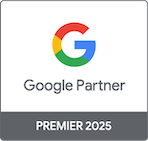
Fake Clicks in Germany: An In-Depth Analysis
Abisola Tanzako | Dec 18, 2024

Table of Contents
- What is a fake click?
- The state of fake clicks in Germany.
- Types of fake click methods in Germany.
- Impact of fake clicks on businesses in Germany.
- Legal measures and regulatory actions against fake clicks.
- Technological solutions to combat fake clicks in Germany.
- Best practices for businesses to minimize fake clicks in Germany.
- The advancement of fake clicks in Germany
- FAQs.
Fake clicks in Germany are an increasing issue in their digital market, presenting a significant risk to businesses globally. Germany, one of Europe’s leading economies with a strong online ad market, is no exception. A fake click occurs when a fake action, executed by a person, automated script, or computer program, mimics a valid user click on an ad, inflating costs for the advertiser and generating revenue for the fraudulent site.
With Germany’s digital advertising market worth over $16 billion, fake clicks are becoming a major challenge for businesses seeking digital growth.
What is a fake click?
A fake click refers to fraudulent clicks made with no genuine interest in the advertised product, often through pay-per-click ads. This fraud aims to:
- Drain the advertiser’s budget: Fraudsters, including competitors or malicious actors, use fake clicks to deplete a business’s ad budget.
- Increase revenue for publishers: Publishers may commit fraud by inflating ad click counts to boost revenue.
Fake clicks are often carried out using botnets, automated scripts, or even paid individuals in click farms. With the expansion of Germany’s digital advertising sector, fake click threats continue to grow.
The state of fake clicks in Germany.
Germany’s dominance in Europe’s digital ad market makes it highly susceptible to fake clicks. Search ads, display ads, social media ads, and video content are frequent targets. The statistics below show the growing threat to small and medium enterprises (SMEs) with limited budgets.
- Fake click rate: According to CHEQ, the fake click rate on major German ad channels was 15% to 18% in 2022.
- Ad fraud losses: CHEQ estimates that global ad fraud, caused by fake clicks, led to a $730 billion loss in Germany alone.
- Mobile ad fake clicks: Mobile advertising is particularly vulnerable, with up to 25% of clicks being fake, as reported by Yahoo Finance in 2023.
- Bots and automated clicks: Pixalate reports that about 20% of clicks in Germany are generated by bots and automated programs.
Types of fake click methods in Germany.
Fake clicks in Germany occur through several methods, including:
- Botnets: Most often, these are webs of infected computers remotely controlled to produce clicks. These hidden bots increase the click-through volumes for target adverts.
- Click farms: People are paid to click repeatedly on ads in click farms. While less common in Germany, they still impact businesses due to international operations.
- Competitor fake clicks: Rivals click on ads to deplete competitors’ ad budgets, particularly in competitive sectors like e-commerce and real estate.
- Self-clicking bots: Some publishers in Germany might make use of self-clicking bots to generate ad clicks placed on their websites, thus inflating ad revenue. Fake clicks of this type may be difficult to detect since it yields an imitation of human activity.
- Automated script: Fraudsters use intelligent scripts to mimic human behavior, complicating detection by anti-fraud systems.
Impact of fake clicks on businesses in Germany.
Fake clicks can have devastating consequences for businesses:
- Financial waste: Fake click inflates the price of ad campaigns without actual customers engaging or converting. It creates a dent that can be painful if the small businesses have limited marketing budgets.
- Lower return on investment: Since ads do not reach real customers, businesses see a reduced return on investment (ROI), which hinders growth.
- Poor search engine ranking: High click-through rates with low engagement metrics, generally due to fake clicks, equate to poor quality scores on platforms like Google Ads. This can thus negatively impact a brand’s visibility in search engine results, even worsening its performance.
- Brand reputation damage: The perception of the brand is yet another area that the businesses operating in Germany’s highly competitive market are concerned with. Fake clicks leading to high bounces and low engagements create a perception of ineffective advertising, negatively impacting a company’s brand reputation.
Legal measures and regulatory actions against fake clicks.
Germany does not have specific laws targeting fake clicks, but its data protection and consumer rights laws address related concerns. Key regulations include:
- The Federal Data Protection Act (BDSG): The German Federal Data Protection Act, in conjunction with the GDPR, protects users’ data and prevents the abuse of personal information. Although it does not directly deal with fake clicks, BDSG sets up a framework that requires companies to treat data responsibly, indirectly curbing fake practices.
- Legal: Under the German consumer protection laws, advertising is supposed to be transparent. Regulators encourage platforms to set firm mechanisms against fraud so consumers will have genuine advertisements rather than fake or fraudulent ones.
- Industry cooperation: Some have joined initiatives such as the Interactive Advertising Bureau (IAB) and the Trustworthy Accountability Group (TAG), which work on European anti-fraud standards. If German firms comply with such standards, they are likely to be able to cut down fake click impacts on their business and ensure fair competition.
Technological solutions to combat fake clicks in Germany.
Since no specific laws exist against fake clicks, German businesses rely heavily on technological solutions:
- AI and machine learning detection: More advanced machine learning algorithms identify patterns that indicate fake clicks. For example, repeated clicks from the same IP address could indicate fraud.
- Geotargeting and IP blocking: By analyzing trends geographically, advertisers can identify the IP addresses used in committing fake clicks and block them. Most businesses in Germany use geotargeting to confine clicks only to particular regions, reducing the probability of fake clicks.
- Bot detection software: Specialized software might track down bots and scripts emulating human clicks to help advertisers block fake clicks before they can start affecting the budget.
- Fake click detection tools: ClickPatrol is one effective tool in this respect. It is an analysis tool that German advertisers use to detect fake clicks through pattern analysis, realizing blocking and offering advanced analysis that could spot suspicious activity instantly.
- Partnership with secure ad networks: Considering the partnership with premium ad networks like Google Ads and Facebook, which have built sophisticated fraud-detection capabilities, this helps stem fake clicks.
Best practices for businesses to minimize fake clicks in Germany.
To reduce fake clicks, businesses in Germany can implement the following best practices:
- Monitoring click patterns: The ad campaigns should be closely monitored for any weird patterns, such as increased clicks from some particular region or device.
- Set budgets and bid caps: Budget capping saves the business from more severe financial damage caused by fake clicks, whereas bid limits keep the costs in check.
- Implement fake click detection software: Ensure it is in and laced, capable of detecting and blocking fake clicks before they adversely impact an advertising budget.
- Join industry anti-fraud initiatives: Engage with organizations like the IAB or TAG to access resources and collaborate on anti-fraud efforts.
The advancement of fake clicks in Germany
As fake clicks in Germany continue to rise, businesses in Germany must take proactive steps to protect their advertising budgets. Although there are no specific laws targeting fake clicks in Germany, companies can leverage technology, collaborate with industry peers, and adopt best practices to minimize the impact of fake clicks. Tools like ClickPatrol, established industry guidelines, and advanced tech measures are crucial for defending against this growing threat.
Businesses can track suspicious activity, identify patterns of fake clicks in Germany, and take immediate action to prevent further damage to their ad spend. Additionally, companies should stay updated on new fake click prevention techniques and work closely with trusted ad networks to protect their campaigns. Proactively vigilant is critical to safeguarding their reputation and bottom line in an increasingly competitive digital marketplace.
FAQs.
Q. 1 Are mobile ads in Germany more vulnerable to fake clicks?
Yes, mobile ads are more prone to fake clicks due to mobile devices’ constantly changing IP addresses, which makes tracking invalid clicks difficult.
Q. 2 How do German regulators address fake clicks?
Although Germany lacks specific laws against fake clicks, data protection, and consumer protection, laws encourage transparency and fair advertising, indirectly reducing fake clicks.
Q. 3 Do international click farms affect German businesses?
Yes, global click farms can target ads from any country, including Germany, contributing to fake clicks.
Q. 4 What do anti-fraud organizations do in Germany?
Anti-fraud organizations like IAB and TAG set industry standards and best practices to help businesses effectively manage and prevent fake clicks.





